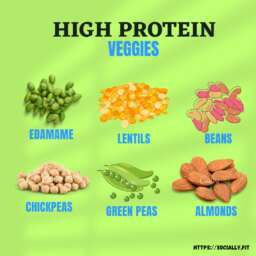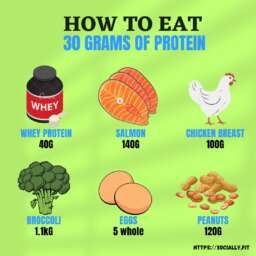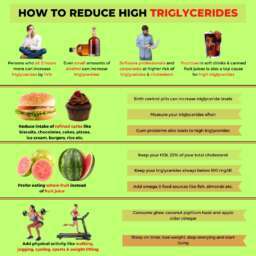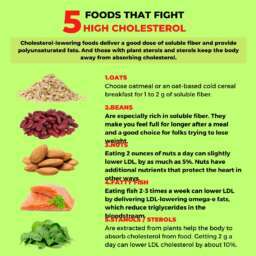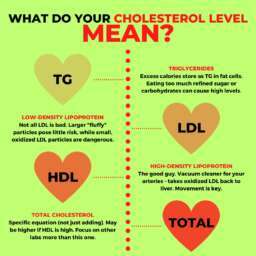Is Whey Protein Good for Weight Loss? Benefits, Uses, and Insights.
Discover if whey protein is good for weight loss. Learn about its benefits, how it aids in fat loss, and the best ways to incorporate it into your diet for optimal results.
Introduction
Are you trying to shed those extra pounds and wondering if whey protein can help? You’re not alone. With its rising popularity, many people are turning to whey protein as a supplement to support their weight loss goals. But is it effective? This article delves deep into the benefits, usage, and scientific backing of whey protein in aiding weight loss. Let’s explore whether whey protein is the magic bullet for your weight loss journey.
Understanding Whey Protein
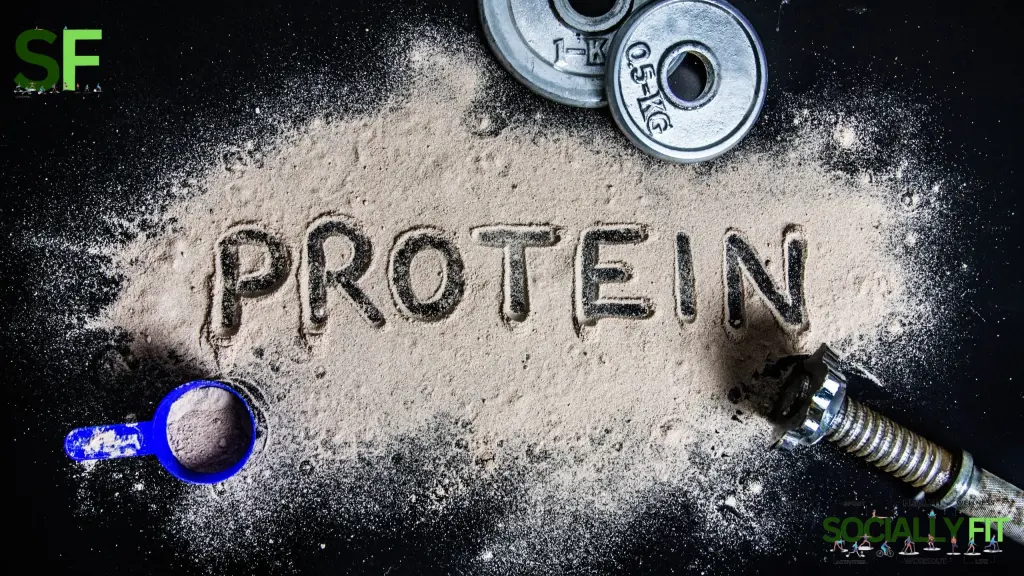
What is Whey Protein?
Whey protein is a high-quality protein derived from milk during the cheese-making process. It is the liquid portion that separates from the curds when milk coagulates. This protein is rich in essential amino acids, which are the building blocks of muscles and tissues in the body.
Whey protein is considered a complete protein because it contains all nine essential amino acids that the human body cannot produce on its own. These amino acids play a crucial role in muscle repair, immune function, and overall health. Due to its excellent nutritional profile, whey protein is a popular supplement among athletes, bodybuilders, and those looking to enhance their protein intake.
There are three main types of whey protein, each with its unique characteristics:
- Whey Protein Concentrate (WPC): This form contains low levels of fat and carbohydrates, with protein content typically ranging between 30-90%. It’s less processed than the other types, retaining more beneficial nutrients found in whey.
- Whey Protein Isolate (WPI): This form is processed to remove almost all fat and lactose, resulting in a protein content of at least 90%. It’s a great option for those who are lactose intolerant or seeking a low-fat, high-protein supplement.
- Whey Protein Hydrolysate (WPH): This type is pre-digested and partially hydrolyzed, meaning it has undergone partial breakdown for faster absorption. It is often used in medical protein supplements and infant formulas due to its ease of digestion.
Types of Whey Protein
- Whey Protein Concentrate (WPC): Contains low levels of fat and carbohydrates, with protein content ranging from 30-90%. Retains more beneficial nutrients.
- Whey Protein Isolate (WPI): Highly processed to remove almost all fat and lactose, resulting in at least 90% protein. Ideal for lactose-intolerant individuals.
- Whey Protein Hydrolysate (WPH): Pre-digested and partially hydrolyzed for faster absorption, often used in medical protein supplements and infant formulas.
- Native Whey Protein: Extracted directly from skim milk, rather than as a byproduct of cheese production, providing a pure and unaltered protein source.
- Grass-Fed Whey Protein: Sourced from the milk of grass-fed cows, offering a higher nutritional profile with more omega-3 fatty acids and antioxidants.
- Whey Protein Blend: A combination of whey protein concentrate, isolate, and sometimes hydrolysate, designed to provide a balanced profile of protein absorption rates.
- Micellar Whey Protein: Processed to maintain the micellar structure of the protein, which can provide a slower digestion rate similar to casein.
- Organic Whey Protein: Certified organic, free from pesticides, hormones, and antibiotics, catering to those seeking a clean, natural protein source.
- Cold-Processed Whey Protein: Produced using low-temperature methods to preserve the protein’s natural state and its bioactive compounds.
- Hormone-Free Whey Protein: Derived from milk produced without the use of growth hormones like rBGH, appealing to those concerned about hormone additives.
Nutritional Profile of Whey Protein
Macronutrients
Whey protein is renowned for its rich macronutrient profile, which includes:
- Protein: Whey protein is an excellent source of high-quality protein, typically providing around 20-25 grams of protein per serving (about 30 grams of powder). It contains all nine essential amino acids necessary for muscle repair and growth.
- Carbohydrates: Whey protein usually contains low amounts of carbohydrates, ranging from 1-5 grams per serving, depending on the type (concentrate, isolate, or hydrolysate). Whey protein isolate has the lowest carbohydrate content.
- Fats: The fat content in whey protein is also minimal, typically ranging from 1-3 grams per serving. Whey protein isolate has the least amount of fat compared to other forms.
Micronutrients
Whey protein is not only rich in protein but also contains various essential vitamins and minerals that support overall health:
- Calcium: Whey protein is a good source of calcium, providing about 10-20% of the daily recommended intake per serving. Calcium is crucial for bone health and muscle function.
- Magnesium: It contributes to muscle function, energy production, and maintaining healthy bones. Each serving of whey protein provides a moderate amount of magnesium.
- Phosphorus: Present in moderate amounts, phosphorus works in conjunction with calcium to maintain strong bones and teeth and plays a role in energy production.
- Potassium: Essential for maintaining fluid balance, nerve function, and muscle contractions, potassium is found in varying amounts in whey protein.
- Sodium: Whey protein contains small amounts of sodium, which helps maintain fluid balance and is necessary for proper muscle and nerve function.
- B Vitamins (B1, B2, B3, B5, B6, B12): These vitamins support energy production, red blood cell formation, and neurological function. Whey protein provides a range of B vitamins, although the specific amounts can vary.
- Vitamin A: Found in small quantities, vitamin A supports immune function, vision, and cellular growth.
- Iron: Whey protein contains a small amount of iron, which is vital for oxygen transport in the blood and energy production.
In summary, whey protein offers a well-rounded nutritional profile, rich in high-quality protein with minimal fats and carbohydrates. It also provides essential vitamins and minerals that contribute to overall health, making it a valuable supplement for those looking to enhance their nutrient intake.
How Whey Protein Aids in Weight Loss
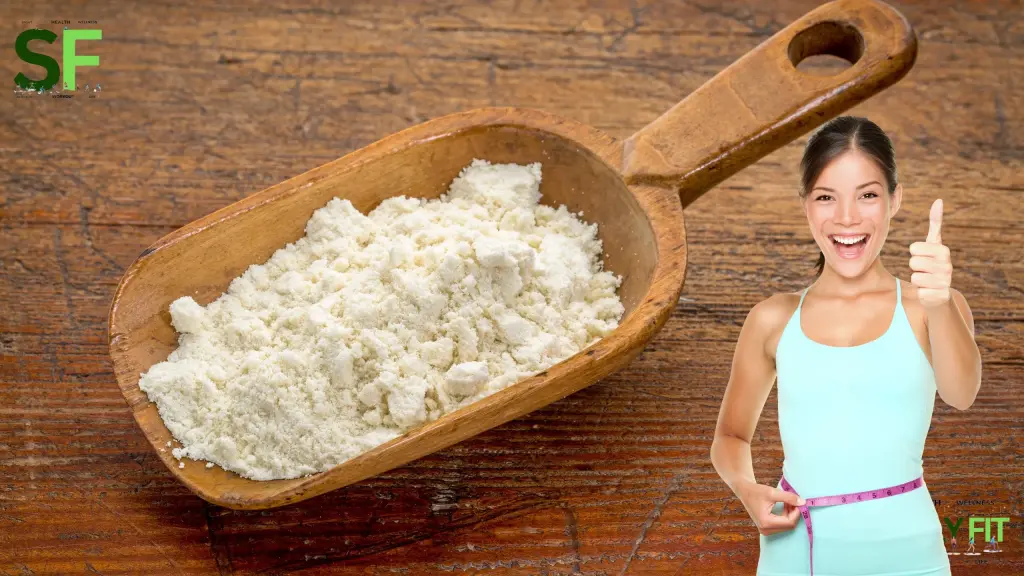
Whey protein is a powerful tool for those aiming to lose weight. Its unique properties and nutritional profile make it an effective aid in weight management. Here’s how whey protein can help you achieve your weight loss goals:
Satiety and Appetite Control
One of the most significant benefits of whey protein is its ability to promote satiety. When you consume whey protein, it helps you feel fuller for longer periods. This can reduce overall calorie intake by curbing hunger and preventing overeating. Whey protein increases the levels of appetite-suppressing hormones such as GLP-1 and PYY, while also reducing levels of the hunger hormone ghrelin.
Muscle Preservation
When you’re losing weight, it’s essential to preserve lean muscle mass while shedding fat. Whey protein helps in maintaining and even building muscle mass. Muscle tissue is metabolically active, meaning it burns more calories at rest compared to fat tissue. By preserving muscle mass, whey protein helps keep your metabolism higher, which is crucial for long-term weight loss success.
Metabolism Boost
Whey protein can boost your metabolism through the thermic effect of food (TEF). TEF is the energy expenditure above the basal metabolic rate due to the cost of processing food for use and storage. High-protein foods, such as whey protein, have a higher TEF compared to fats and carbohydrates. This means that your body burns more calories digesting and processing protein, aiding in weight loss.
Improved Insulin Sensitivity
Whey protein can improve insulin sensitivity, which helps in better blood sugar regulation. This can prevent spikes and crashes in blood sugar levels, reducing cravings for sugary and high-carb foods. Stable blood sugar levels are crucial for controlling hunger and maintaining energy levels, making it easier to stick to a calorie-controlled diet.
Supports Fat Loss Over Muscle Loss
Studies have shown that whey protein supplementation can help reduce body fat while preserving lean muscle mass. This is particularly important when you’re on a calorie deficit, as the body might otherwise break down muscle tissue for energy. By ensuring that you lose fat rather than muscle, whey protein helps you achieve a toned and lean physique.
Enhances Exercise Performance
Whey protein is beneficial for enhancing exercise performance, which is an integral part of any weight loss program. Consuming whey protein before and after workouts provides your muscles with the necessary amino acids for repair and growth. This not only improves recovery but also enhances performance, allowing you to work out harder and burn more calories.
Reduces Cravings and Late-Night Snacking
Including whey protein in your diet can help reduce cravings and late-night snacking, which are common barriers to weight loss. A whey protein shake or snack can be a satisfying and nutritious option that helps you avoid unhealthy choices. Its ability to stabilize blood sugar levels and keep you full plays a significant role in curbing these cravings.
Promotes Fat Oxidation
Whey protein has been shown to increase fat oxidation, which is the process of breaking down fatty acids for energy. This helps in utilizing stored fat as a fuel source, contributing to overall fat loss. Increased fat oxidation is particularly beneficial during exercise, where it enhances the body’s ability to burn fat.
Low-Calorie, High-Nutrient Option
Whey protein is a low-calorie, high-nutrient option, making it ideal for those on a weight loss journey. It provides a high amount of protein with minimal fats and carbohydrates, allowing you to meet your protein needs without consuming excessive calories. This makes it easier to maintain a calorie deficit while ensuring adequate nutrient intake.
Convenient and Versatile
Whey protein is convenient and versatile, fitting easily into various diets and lifestyles. Whether you’re at home, at work, or on the go, whey protein can be quickly prepared and consumed. Its versatility allows you to incorporate it into meals, snacks, smoothies, and even baked goods, providing numerous ways to enjoy its benefits.
In summary, whey protein aids in weight loss through multiple mechanisms, including promoting satiety, preserving muscle mass, boosting metabolism, improving insulin sensitivity, and supporting exercise performance. Its convenience and versatility make it a practical addition to any weight loss plan, helping you achieve your goals more effectively.
Scientific Studies on Whey Protein and Weight Loss

Key Research Findings
- Study on Satiety and Reduced Caloric Intake:
Journal: Appetite (2011)
Findings: This study found that participants who consumed whey protein experienced increased feelings of fullness and reduced overall calorie intake compared to those who consumed other protein sources. The study highlighted whey protein’s role in regulating appetite and aiding weight loss through decreased food consumption. - Study on Fat Loss and Muscle Preservation:
Journal: The American Journal of Clinical Nutrition (2008)
Findings: Research showed that participants who included whey protein in their diet while engaging in resistance training lost significantly more body fat and preserved more lean muscle mass compared to those who consumed a carbohydrate supplement. This study emphasized whey protein’s dual benefit of fat loss and muscle preservation. - Study on Metabolism Boost:
Journal: The Journal of Nutrition (2004)
Findings: This study demonstrated that whey protein consumption increased the thermic effect of food (TEF) more than carbohydrates and fats. Participants who consumed whey protein showed a higher rate of calorie burning, thus supporting weight loss efforts through an increased metabolic rate. - Study on Insulin Sensitivity:
Journal: British Journal of Nutrition (2010)
Findings: The study indicated that whey protein improved postprandial (after meal) insulin responses and insulin sensitivity. Improved insulin sensitivity is crucial for better blood sugar control and can aid in reducing cravings and managing weight effectively. - Study on Exercise Performance and Recovery:
Journal: Journal of the International Society of Sports Nutrition (2013)
Findings: This research found that whey protein supplementation before and after exercise enhanced muscle recovery, reduced muscle soreness, and improved exercise performance. This allows for more intense and effective workouts, contributing to greater calorie expenditure and weight loss.
Expert Opinions
- Dr. Layne Norton, PhD (Nutrition and Exercise Science):
Opinion: “Whey protein is an excellent supplement for weight loss due to its high bioavailability and complete amino acid profile. It supports muscle preservation, which is essential for maintaining a healthy metabolism during weight loss.” - Dr. Jose Antonio, PhD (Sports Science):
Opinion: “Consuming whey protein can significantly enhance fat loss while preserving lean muscle mass. Its rapid absorption makes it ideal for post-workout nutrition, optimizing recovery and muscle growth, which indirectly aids in weight loss.” - Dr. Susan Kleiner, PhD, RD (Sports Nutritionist):
Opinion: “Whey protein is highly effective in promoting satiety and reducing calorie intake. Its impact on hunger hormones and blood sugar levels makes it a valuable tool for anyone looking to lose weight and control appetite.” - Dr. Alan Aragon, MS (Nutrition Expert):
Opinion: “Whey protein’s ability to boost metabolism and promote fat oxidation makes it a powerful addition to a weight loss program. The combination of increased thermogenesis and improved muscle maintenance helps create an optimal environment for fat loss.” - Dr. Stuart Phillips, PhD (Protein Metabolism Expert):
Opinion: “The evidence supporting whey protein’s role in muscle protein synthesis is robust. For those looking to lose weight, whey protein helps ensure that the weight lost is predominantly fat, not muscle, which is crucial for long-term metabolic health.”
Whey Protein and Exercise
Pre-Workout Benefits
- Energy Boost: Consuming whey protein before a workout provides a quick source of amino acids that can be used for energy, helping you perform better during exercise.
- Muscle Preservation: Pre-workout whey protein helps to prevent muscle breakdown during intense exercise by supplying your muscles with essential amino acids.
- Enhanced Muscle Protein Synthesis: Taking whey protein before exercise can jumpstart the muscle protein synthesis process, preparing your muscles for the upcoming stress of the workout.
- Improved Endurance: The branched-chain amino acids (BCAAs) in whey protein can reduce fatigue and improve endurance, allowing you to train longer and harder.
- Reduced Muscle Soreness: Pre-workout whey protein can help reduce muscle soreness and damage, making your recovery process smoother and quicker.
Post-Workout Recovery
- Rapid Absorption: Whey protein is quickly absorbed by the body, making it an ideal post-workout supplement to deliver amino acids to your muscles promptly.
- Muscle Repair and Growth: Post-workout whey protein supplies the necessary building blocks for muscle repair and growth, enhancing recovery and muscle gains.
- Glycogen Replenishment: Whey protein can aid in replenishing glycogen stores when consumed with carbohydrates post-workout, helping restore energy levels faster.
- Reduced Muscle Breakdown: Consuming whey protein after exercise reduces muscle protein breakdown, preserving your hard-earned muscle mass.
- Enhanced Muscle Protein Synthesis: Post-workout whey protein optimizes muscle protein synthesis, which is crucial for muscle recovery, growth, and overall performance improvement.
In summary, incorporating whey protein both before and after workouts can significantly enhance your exercise performance and recovery. Pre-workout benefits include energy boost, muscle preservation, and improved endurance, while post-workout advantages encompass rapid absorption, muscle repair, and reduced muscle breakdown. By strategically using whey protein around your exercise routine, you can maximize your workout results and support your weight loss and fitness goals effectively.
Potential Side Effects and Considerations
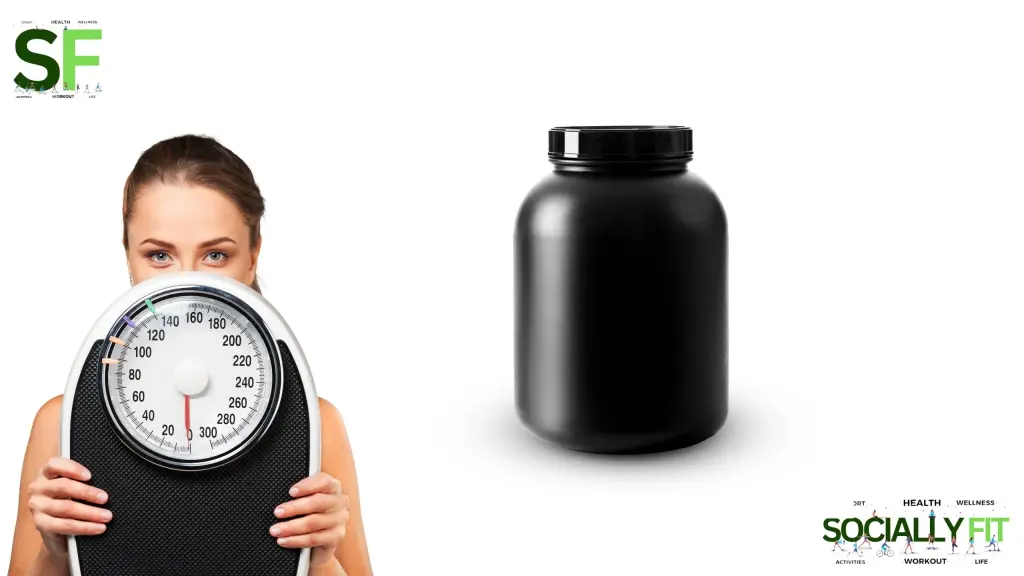
While whey protein is generally safe and beneficial for most people, it’s important to be aware of potential side effects and considerations to ensure you use it effectively and safely. Here are 10 tips to keep in mind:
- Digestive Issues: Whey protein can cause digestive discomfort such as bloating, gas, or diarrhea in some individuals, especially those who are lactose intolerant. Opt for whey protein isolate or hydrolysate, which contain less lactose, if you experience these issues.
- Allergic Reactions: Although rare, some people may have an allergy to whey protein or dairy. Symptoms can include rash, itching, or swelling. If you suspect an allergy, consult with a healthcare provider and consider alternative protein sources.
- Kidney Health: High protein intake can put extra strain on the kidneys, particularly in individuals with pre-existing kidney conditions. Ensure you consume whey protein in moderation and consult with a healthcare provider if you have kidney issues.
- Caloric Intake: Whey protein supplements can contribute to your overall calorie intake. Be mindful of your total caloric consumption to avoid unintentional weight gain, especially if you’re using whey protein in addition to your regular diet.
- Interaction with Medications: Whey protein might interact with certain medications, such as those for diabetes or hypertension. If you’re on medication, check with your healthcare provider to ensure there are no adverse interactions.
- Nutrient Imbalance: Relying solely on whey protein for protein needs can lead to a lack of diversity in your diet. It’s important to balance your protein intake with other nutrient-rich foods to maintain overall health.
- Unregulated Products: Not all whey protein supplements are created equal. Choose products from reputable brands that undergo third-party testing to ensure quality and purity, avoiding those with excessive additives or contaminants.
- Overconsumption Risks: Excessive consumption of whey protein can lead to an imbalance in nutrient intake and potential health issues. Stick to the recommended dosage and ensure it fits within your overall dietary plan.
- Bone Health: Some studies suggest that a very high protein intake might affect calcium balance and bone health. Ensure adequate calcium intake and consider discussing your dietary protein levels with a nutritionist.
- Potential for Contamination: Some whey protein products may contain contaminants like heavy metals or banned substances. Opt for products that are certified for purity and safety to minimize these risks.
In summary, while whey protein offers numerous benefits, it’s essential to be aware of and manage potential side effects and considerations. By choosing high-quality products, moderating intake, and consulting with healthcare professionals when needed, you can effectively incorporate whey protein into your diet while maintaining overall health and wellness.
Whey Protein vs. Plant-Based Proteins
| Aspect | Whey Protein | Plant-Based Proteins |
|---|---|---|
| Protein Quality | Complete protein with all nine essential amino acids. | Often incomplete; may require combining different sources to achieve a complete amino acid profile. |
| Digestibility | Highly digestible and absorbed quickly by the body. | Digestibility can vary; some plant proteins may be less easily absorbed and digested. |
| Allergen Considerations | Contains dairy, which may cause issues for those with lactose intolerance or dairy allergies. | Generally free from dairy and suitable for those with lactose intolerance or dairy allergies. |
| Nutritional Profile | Rich in essential amino acids, calcium, and B vitamins. | Nutrient profile varies; may lack some B vitamins and minerals unless fortified. |
| Environmental Impact | Higher environmental impact due to dairy farming practices. | Lower environmental impact; plant-based sources are generally more sustainable and eco-friendly. |
This table provides a quick comparison of key aspects between whey protein and plant-based proteins, helping you make an informed choice based on your dietary needs and preferences.
Whey Protein vs. Casein Protein
| Aspect | Whey Protein | Casein Protein |
|---|---|---|
| Digestibility | Rapidly digested and absorbed by the body. | Slowly digested and absorbed, providing a steady release of amino acids. |
| Absorption Rate | Fast absorption, ideal for post-workout recovery. | Slow absorption, suitable for sustained amino acid release during periods of fasting, like overnight. |
| Protein Quality | Complete protein with all essential amino acids. | Also a complete protein with all essential amino acids. |
| Impact on Satiety | Less effective in keeping you full for long periods. | More effective in promoting satiety due to its slow digestion. |
| Usage and Timing | Best used immediately after workouts for quick recovery. | Often used before bedtime to support muscle repair and growth during sleep. |
This table highlights the primary differences between whey and casein protein, helping you determine which protein type best fits your needs based on digestion rate, absorption, and timing of use.
Choosing the Right Whey Protein Supplement
What to Look For in a Whey Protein Supplement
- Protein Content: Ensure the supplement provides a high percentage of protein per serving. Look for products with at least 20-30 grams of protein per serving, which indicates a high-quality product.
- Type of Whey Protein: Choose the type that best fits your needs:
Whey Protein Concentrate (WPC): Offers a balance of protein and nutrients with moderate fat and carbohydrate content.
Whey Protein Isolate (WPI): Ideal for those needing a low-fat, low-lactose option. - Ingredient List: Check for minimal additives, fillers, and artificial ingredients. The best whey protein supplements have a short and clean ingredient list, focusing primarily on whey protein.
- Flavor and Taste: Consider the flavor options and taste, especially if you plan to consume the supplement regularly. Many products come in a variety of flavors like vanilla, chocolate, and berry.
- Quality Assurance: Look for products that undergo third-party testing for purity and quality. Certifications like NSF Certified for Sport or Informed-Sport ensure that the product is free from contaminants and banned substances.
- Allergen Information: Ensure the product is suitable for your dietary restrictions. If you have lactose intolerance or dairy allergies, opt for whey protein isolate or hydrolysate, which contain less lactose.
- Nutritional Profile: Assess the overall nutritional profile, including carbohydrate, fat, and calorie content. Choose a supplement that aligns with your dietary goals and needs.
- Price vs. Value: Compare the cost per serving and overall value of the product. Sometimes higher price does not always equate to higher quality, so evaluate based on protein content and ingredient quality.
- Customer Reviews: Read reviews and ratings from other users to gauge effectiveness, taste, and any potential side effects. This can provide insight into the product’s performance and reliability.
- Brand Reputation: Choose products from reputable brands with a history of quality and customer satisfaction. Established brands are more likely to produce consistent and reliable products.
Trusted Brands and Products
- Optimum Nutrition Gold Standard Whey: Known for its high-quality whey protein isolate, excellent taste, and comprehensive third-party testing. It’s a popular choice for both beginners and experienced users.
- Dymatize Nutrition ISO100: A whey protein isolate with fast absorption and a high protein-to-calorie ratio. It’s renowned for its purity and effectiveness in muscle recovery.
- BSN Syntha-6: Offers a blend of whey protein concentrate and isolate, providing a sustained release of amino acids. It’s favored for its taste and variety of flavors.
- MuscleMilk Genuine Protein Powder: Provides a mix of whey and casein proteins, suitable for those needing a combination of fast and slow-digesting proteins. Known for its rich taste and nutritional balance.
- MyProtein Impact Whey Isolate: A high-quality whey isolate with a low fat and carbohydrate content. It’s appreciated for its affordability and range of flavors.
In summary, when choosing a whey protein supplement, consider factors such as protein content, type, ingredient list, and brand reputation. Trusted brands like Optimum Nutrition, Dymatize Nutrition, and BSN offer high-quality products that cater to various needs and preferences, ensuring you get a reliable and effective supplement.
Myths and Misconceptions About Whey Protein

- Myth: Whey Protein Causes Kidney Damage.
Fact: For healthy individuals, moderate whey protein consumption is not harmful to kidneys. However, those with pre-existing kidney conditions should consult a healthcare provider before increasing protein intake. - Myth: Whey Protein Leads to Weight Gain.
Fact: Whey protein itself does not cause weight gain. It helps with muscle maintenance and can support weight loss if used as part of a balanced diet and exercise routine. - Myth: Whey Protein is Only for Bodybuilders.
Fact: Whey protein is beneficial for anyone needing to increase protein intake, including athletes, active individuals, and those looking to manage their weight or support muscle recovery. - Myth: Whey Protein is Harmful to Your Liver.
Fact: Whey protein is generally safe for the liver in healthy individuals. Excessive protein intake from any source can stress the liver, so moderation is key. - Myth: All Whey Protein Supplements are the Same.
Fact: Whey protein supplements vary in quality, types (concentrate, isolate, hydrolysate), and additional ingredients. Choose products based on your specific needs and quality standards. - Myth: Whey Protein is Not Suitable for Lactose Intolerant Individuals.
Fact: Whey protein isolate and hydrolysate contain minimal lactose and can often be tolerated by those with lactose intolerance. Whey protein concentrate, however, contains more lactose. - Myth: Whey Protein Increases Risk of Osteoporosis.
Fact: Whey protein does not increase the risk of osteoporosis. In fact, it can support bone health due to its high calcium content, which is beneficial for bone strength. - Myth: You Can Get All Your Protein Needs from Whey Protein Alone.
Fact: While whey protein is a high-quality protein source, a varied diet is necessary for complete nutrition. Relying solely on whey protein can lead to imbalances and lack of essential nutrients. - Myth: Whey Protein Causes Acne.
Fact: There is no strong evidence linking whey protein directly to acne. However, individuals with sensitive skin or existing acne issues should monitor their response and consult a dermatologist if needed. - Myth: Whey Protein is Only Effective if You Take It Immediately After Workouts.
Fact: While consuming whey protein post-workout can enhance recovery, its benefits extend beyond this time. Whey protein can be effective when consumed at any time to meet overall protein needs.
These clarifications help dispel common myths and provide a clearer understanding of whey protein’s role in a balanced diet and fitness regimen.
FAQs About Whey Protein and Weight Loss
- Can whey protein replace a meal?
It can be a part of a meal but should not replace balanced whole foods regularly. - Is whey protein safe for long-term use?
Yes, for most people, but it’s important to follow recommended dosages. - Does whey protein help in losing belly fat?
It can aid overall fat loss, including belly fat, when combined with a healthy diet and exercise. - Can I take whey protein if I’m lactose intolerant?
Whey protein isolate is low in lactose and may be tolerable for some with lactose intolerance. - How soon will I see results with whey protein?
Results vary, but with consistent use and proper diet/exercise, you may see changes within a few weeks.
Conclusion
Whey protein can be a valuable tool in your weight loss journey. Its ability to promote satiety, preserve muscle mass, and boost metabolism makes it an excellent choice for those looking to shed pounds. By incorporating whey protein into your diet strategically and choosing the right supplement, you can enhance your weight loss efforts effectively. Remember, consistency is key, and pairing whey protein with a balanced diet and regular exercise will yield the best results.








